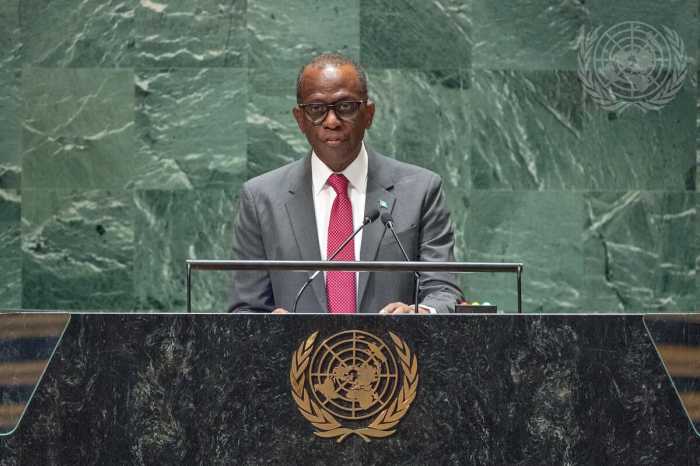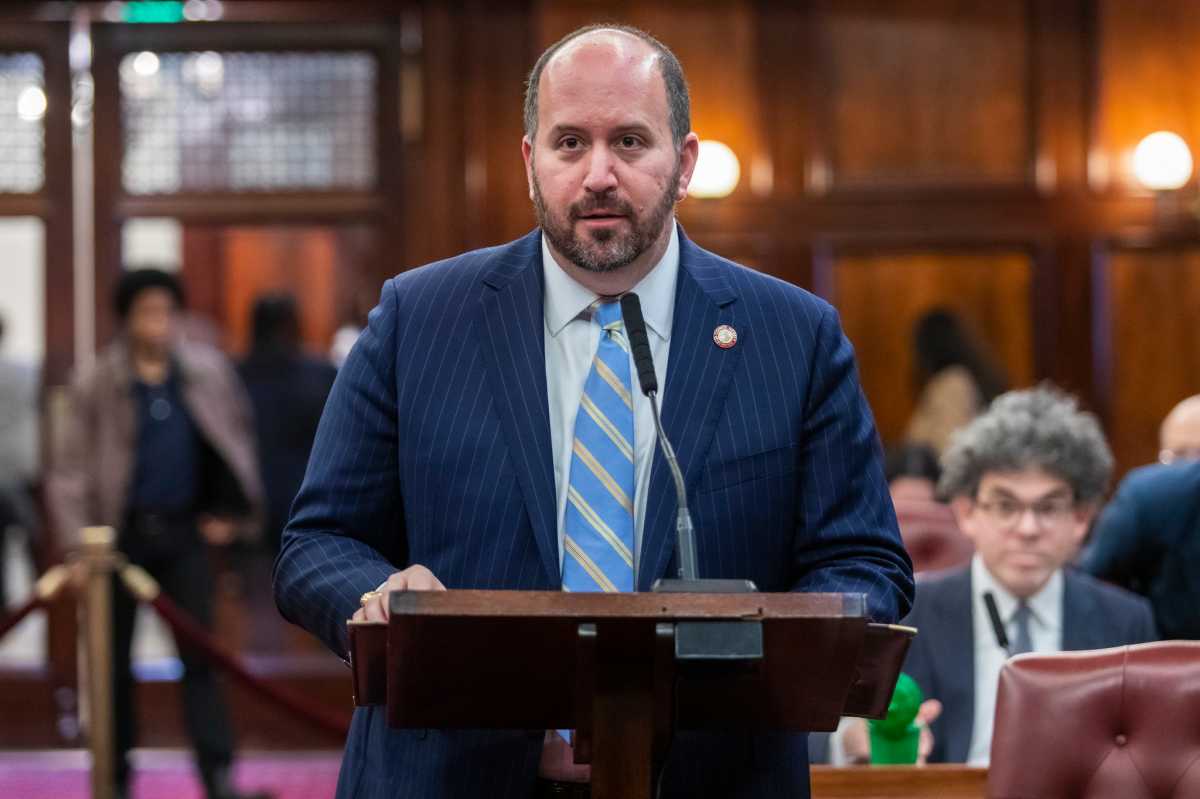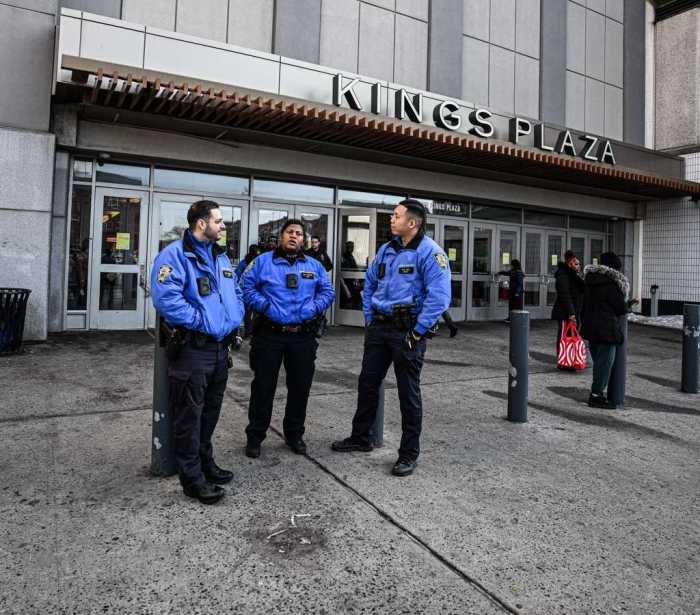Antigua and Barbuda
In collaboration with regional partners, the Government of Antigua and Barbuda hosted a three-day Environmental Sustainability Exhibition at the University of the West Indies (UWI) Five Islands Campus.
The exhibition was held alongside the 118th Special Meeting of the Council for Trade and Economic Development (COTED) on Environment and Sustainable Development and aimed to bring together regional policymakers, development agencies, academics, and local innovators to promote environmental resilience and sustainable growth throughout the Caribbean.
The event will showcase interactive exhibits, live demonstrations, and community-driven solutions across key sectors such as climate change adaptation, renewable energy, marine conservation, waste management, and green construction.
CARICOM and OECS officials, government representatives, and leaders in environmental sustainability made remarks during the opening ceremony on April 28 at 9 a.m.
“This exhibition is not only a celebration of Caribbean resilience and innovation,” said a spokesperson from the Department of Environment, “it is also a call to action, encouraging our communities, especially youth, to engage with sustainable development and climate-smart solutions.”
The exhibition featured a dynamic mix of regional and local exhibitors.
Barbados
Barbados will host a Caribbean Arts and Heritage Symposium focusing on Artificial Intelligence (AI) ‘s regional implications for the Orange Economy.
The event, which will be held on May 16, is being organized by the United Nations Development Programme (UNDP) Accelerator Lab for Barbados and the Eastern Caribbean and the Barbados Museum and Historical Society (BMHS), with support from the International Council of Museums (ICOM) Barbados.
The organizers said the event is planned during the week of International Museum Day 2025 under the theme “The Future of Museums.”
They added, “More specifically, the AI Symposium on Caribbean Arts & Heritage event will generate discussion on the critical topics of Al’s relationship to digital transformation, art production, Intellectual Property (IP), cultural heritage, film and TV, youth, LGBTQIA+ groups, human rights, and archaeology.”
They noted that the symposium is the first of its kind hosted by UNDP in Barbados and the Eastern Caribbean, focusing on the intersections between Al and the Caribbean Orange Economy.
The primary objectives of the event are to generate public awareness of the uses of Al in the arts sector and create a safe space for dialogue surrounding AI in the Caribbean arts sector.
Caribbean
The Caribbean tourism industry is expected to continue growing this year, but economic uncertainties and slowdowns in major source markets during the first quarter of the year could affect the sector’s growth pace.
Director of Research at the Barbados-based Caribbean Tourism Organization (CTO) Aliyyah Shakeer said the CTO now anticipates that overnight visitor arrivals will increase by 2 to 5 %, reaching approximately 35 million.
The outlook for the cruise sector remains positive, with cruise arrivals expected to grow to 7 %, reaching an estimated 36 million visitors. “The Caribbean’s continued growth is a testament to the strength of our regional collaboration and the enduring appeal of our destinations,” said Dona Regis-Prosper, CTO’s Secretary-General.
“Despite geopolitical uncertainty and global economic challenges, our sector has shown remarkable resilience. To maintain this momentum, we must double down on strategic investments, innovative partnerships, and sustainable practices that protect our people, culture, and environment. The future of Caribbean tourism is not only bright; it is ours to shape,” she added.
The CTO said that the regional tourism sector continued its robust recovery and expansion in 2024, with international tourist arrivals reaching 34.2 million.
A new report released by the CTO shows a 6.1 % increase compared to 2023 and a 6.9% rise above pre-pandemic levels, marking the second consecutive year that the region has outperformed the 2019 benchmark.
Haiti
The Office for the Coordination of Humanitarian Affairs in Haiti (OCHA) says gang activities in Haiti continue to fuel violence, displace families, and disrupt much-needed humanitarian operations across multiple parts of the country.
Stéphane Dujarric, the spokesman for UN Secretary-General Antonio Guterres, said that the International Organization for Migration (IOM) noted that more than 200,000 men, women, and children were living in spontaneous displacement sites across the country recently.
He said the number of these sites nearly doubled between March and April, from 119 to 228. The IOM says this is largely due to the fact that more people have been forced to flee following attacks in the Centre Department.
“Also important to note that more than 90 % of the people who have sought refuge at spontaneous sites are concentrated in the capital, Port-au-Prince,” Dujarric said.
Adding that in the community of Kenscoff, armed attacks recently displaced nearly 1,000 people, with many of them finding shelter with families while others moved to three newly established sites. He said police vehicles were set on fire, and multiple security incidents resulting in casualties were reported.
“That is what local partners are telling us. The ongoing insecurity continues to impact humanitarian operations,” Dujarric said, adding that between 21 March and 25 April, 15 incidents have been recorded affecting NGOs (non-governmental organizations), including blocking trucks, burning supplies, crossfire incidents, and attacks against NGO vehicles.
Dujarric said access to critical roads remains extremely limited, forcing the reliance on costly air transport.
Jamaica
The Senate has approved a proposed law to formally establish the Jamaica Teaching Council (JTC), which will regulate the profession and issue licenses.
The legislation, which has been pending for more than two decades, will now be debated in the House of Representatives.
The Jamaica Teaching Council bill proposes the introduction of provisions that distinguish between registered, licensed, and authorized teachers.
It will introduce a proper requirement, including criminal background checks, for people seeking to enter the teaching profession and provide special pathways for skilled professionals without traditional training credentials to receive temporary authorization to teach.
Regarding penalties, offenses related to unauthorized teaching or misrepresentation will incur fines of J$500,000 up to $1.5 million or a term of imprisonment not exceeding 12 months.
The bill also includes transitional provisions.
Minister of Education Dana Morris Dixon says the teachers already registered under the Education Act are exempted but must apply for a license or authorization within 24 months.
St. Kitts & Nevis
Police have warned people against using social media to spread false rumors after a report indicated that a minor had died by suicide due to bullying.
“We did not receive any official report of this nature at any of the police stations in St. Kitts & Nevis. We continue to encourage the general public to be mindful that social media, like all things available for our usage and enjoyment, should be used responsibly,” the police said in a statement.
It said further that the dissemination of information, whether fact or fiction, to malign another individual or induce a panicked atmosphere in the community is an offense for which one can be held liable, whether by the police or the aggrieved party.
The police said such acts fall under the scope of the unlawful communications section of the Electronic Crimes Act of St. Kitts and Nevis.
It said that where a person without lawful excuse or justification knowingly uses a computer system to send a message, letter, or electronic communication that “is obscene; constitutes a threat; or is menacing in character, to a recipient and intends to …feel intimidated, molested, harassed or threatened, he commits an offense.”
According to the police statement, the person is liable, on summary conviction, to a fine of EC$10,000, to imprisonment for a term of 12 months, or to both such fine and imprisonment.
The police are also warning that “where a person without lawful excuse or justification publishes the message, letter or electronic communication to any other person not being a person who is the subject of the message…then that first person commits an offense and is liable on summary conviction to a fine of EC$15,000 or imprisonment for a term of two years or to both such fine and imprisonment.”
The police are reminding the public that communication that constitutes a threat or is menacing in character includes communication that causes substantial emotional distress.
Compiled by Devika Ragoonanan

























